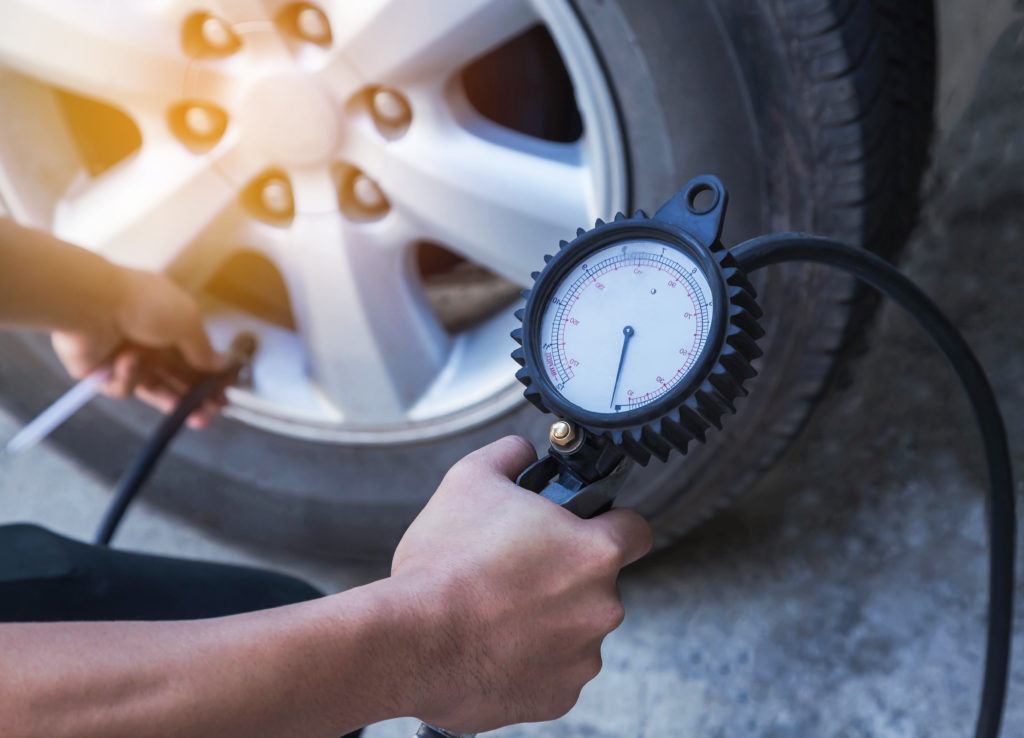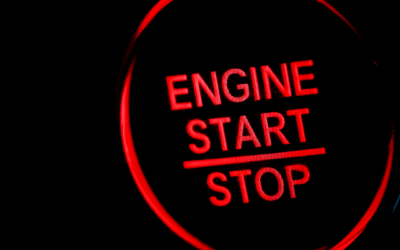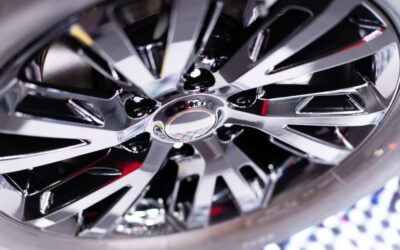Making sure your tyres have the right pressure is essential for your tyres’ longevity and reliability, as well as the safety of you and your passengers.

What should my tyre pressure be?
It all depends on the car you drive. Different cars require different levels of tyre pressure, it may be a classic car or a modern car. Different circumstances will also demand different tyre pressures. For example, if you routinely drive with multiple passengers or other heavy loads, you’ll need a higher tyre pressure than usual.
Want to know what the tyre pressure should be for your car?
- Read your vehicle’s handbook.
- Open either the driver’s door or the passenger’s door and look for a table of essential information. This should list the right tyre pressure for your car.
- You may also find this information inside your car’s fuel cap.
Many tyre specialists also offer online tyre pressure guides. Just enter your car registration number and they’ll tell you the appropriate tyre pressure for your car. Head here to use Kwik Fit’s online tyre pressure check tool.
What is Tyre Pressure?
It is a measure of the amount of air in the inner linings of your tyres. It’s either measured in measure per square inch (PSI) or BAR pressure. Need to convert? One BAR is equal to 14.5 PSI.
Why is Tyre Pressure Important?
Inflate your tyres to the recommended tyre pressure and you’ll increase your tyres’ longevity and reliability. You’ll also enjoy a better fuel economy and be keeping you and your passengers safe.
What happens if it is too low?
If your tyre pressure’s too low, you could reduce your tyre’s lifespan by over a third. You’ll get accelerated wear on the exterior of your tyre. Over time, this could prove disastrous. You could eventually get a blowout, which could cause you to lose control of your car completely.
Under-inflated tyres also reduce fuel efficiency. You’ll get more friction, so your car will need to use more fuel to keep you moving.
What happens if it is too high?
At the same time, it’s not a good idea to over-inflate your tyres. If your tyre pressure’s too high, your tyres will be bouncy. This will result in uneven wear across your tyres. You’re more likely to get bumps and cuts, and you’ll probably have to get new tyres much sooner than you would otherwise.
Head here to read our complete guide to tyre safety, with details on the fines and risks you’ll face if you ignore the guidelines.
How Often Should I Check My Tyre Pressure?
Get into the habit of checking your tyre pressure regularly. Once a month is fine, but once every two weeks is better. And remember that heavier loads require different tyre pressure levels. Check your car’s handbook for more information.
How to Check Your Tyre Pressure
You’ll need a suitable pressure gauge – one that uses the same unit of measurement as your vehicle handbook. This will either be PSI or BAR.
Once you’ve got your gauge, checking your tyre pressure is a straightforward process:
- Remove the tyre valve’s dust cap.
- Place the pressure gauge on the tyre valve stem.
- Press down on the gauge and you’ll get a reading of your car’s tyre pressure. It will either be too low, too high, or just right.
If the pressure is too high, you’ll need to deflate your tyres a little. You can usually do this through simply removing the tyre’s dust cap a little. Release air as slowly and carefully as you can, and take regular readings with your pressure gauge until you reach the right pressure for your car.
If the pressure is too low, you’ll need to use an air pump to inflate to the correct level. You can buy your own air pump, or you can drive to your nearest petrol station and use theirs. Indeed, most petrol station air pumps allow you to select a pressure level in advance.
Make sure you check the pressure of every tyre on your car. And don’t forget your spare! You never know when you might need it.
Also, it’s best to check your tyre pressure before you set out, when your tyres are still cold. Once you drive on your tyres they’ll get hot, which can sometimes result in inaccurate pressure readings.
All kinds of regular checks can help you keep safe on the roads. But for ultimate peace of mind, comprehensive car insurance will keep you covered should anything ever go seriously wrong.



